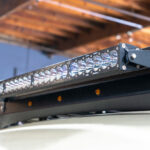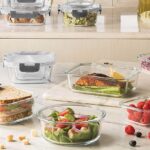Water is an essential part of our lives. Polluted water is harmful to human health and can cause a range of diseases. For that very reason, drinking filtrated water is our safest option.
Choosing the Right Filtration System

Choosing a water filter for drinking and cooking at home might be difficult because various types are available. All of them have different levels of filtration and, of course, different prices.
How Do Water Filtration Systems Work?
Filtration of water removes unwanted chemical compounds, organic and inorganic pollutants, and biological contaminants. Water filtration’s goal is to provide safe drinking water. Water purification can be done on a small or large scale, and water filtering can supply clean, potable water for industrial purposes and individual homes. This purification and filtration process removes bacteria, algae, fungi, viruses, parasites and suspended particles.
What to Consider Before Buying a Filter?
When looking through the best water filtration systems available on the market, keep the following factors in mind to make the best buying decision.
Test and Find out the Problem
You must first discover the source of the water contaminants before buying the water filter. Even water that appears pure to us often includes heavy metal, which is just as dangerous. Do a water test to see what you’ll discover. If you find heavy metals in your home water and need a filter, read reviews, ask questions, and do some research to determine which one you need.
If you have a well at home, it’s a good idea to test the water on your own. It will provide you with the results in a short time, allowing you to prevent the problem sooner. Choose which contaminants in the water you want to eliminate. That is how you will be able to install the water filtration systems in your home properly. Keep in mind that no filter can effectively remove all contaminants.
Water Pressure
The type of filter you need depends on the flow rate of the inbound water supply. With high water pressure, a reverse osmosis system would function efficiently. Water pressure is affected by the height of your building and other factors such as clogged filters and blocked pipes. If your home’s water supply has low pressure, a booster pump can be used in conjunction with a RO (reverse osmosis) system. You could use an activated carbon purifier if your water supply has less TDS (total dissolved solids).
Electricity
When it comes to water purifiers, electricity is crucial. Many of them can’t function without electricity. Without power, a UV won’t work because it relies on it to create ultraviolet light, which kills bacteria. Because energy is required to produce enough water pressure for the membrane, a RO system would not function without it.
Like sediment filters and ultra-filters, activated carbon purifiers do not require energy. Non-electric purifiers can only remove some of the chemicals present in water and germs and sand, whereas RO and UV systems can remove TDS and bacteria. Water purifiers that run on electricity are the best option.
Types of Filters

Point of entry (POE) systems treat the water that enters our home. It’s installed on the main water line, and it’s connected to the water meter or the pressurised storage tank. It controls and filters the water from our bathtubs, sinks, washing machines, showers etc. This system will remove chlorine, iron, sulphur, dissolved solids, etc.
Chlorine Systems
Chlorine is commonly used to disinfect city water to prevent infections. However, it produces hazardous consequences when organic stuff is mixed with it. Chlorine filters use carbon filtering to absorb chlorine. It provides chlorine-free water to the entire house.
Water Softeners
Manufacturers use Ion-exchange technology in water softeners to filter the water. It lowers the magnesium and calcium levels in your tap water. This filtering system is a good choice if you want to save time, energy, and money.
UV Microbiological System
The UV microbiological treatment method is incredibly effective at removing microbial pollutants. It’s a chemical-free and safe disinfecting method. Even if the germs are chlorine-resistant, UV radiation renders them harmless. This system is environmentally friendly and can remove 99% of harmful microorganisms.
Point of use (POU) systems filter water where it is used, and you can choose where you need it. If you only want to filter drinking and cooking water, you could put a filter under your kitchen sink. Portable countertop filters, such as pitcher filters, distillers, gravity filters, and faucet-mounted filters, are also available.
Pour-Through, Pitcher and Dispenser Filters
Pitcher filters are ideal for filtering heavy metals in the water. They are suitable for smaller families. Carbon filters are used in them, and they’re simple to set up. You’ll need to replace the filters every three months for the system to function correctly. You must refill these pitchers regularly, so they require a little more care and attention.
Faucet Mount
A faucet mount water filter is a good choice if you want a constant clean water supply for cooking and drinking. While the water is going through the tap, these filters extract toxins and treat the impurities. People that rent apartments and houses appreciate these filters since they are easy to use, self-installed devices.
Under the Sink
Water filtration systems that you can install under the sink or plumb in are more advanced. They work well in eliminating certain pollutants. You can find carbon block filters in the majority of them. These filters are hidden behind the kitchen sink and have several other features that can filter sediments and minerals and target specific contaminants. It’s a highly efficient filtration system.
Reverse Osmosis
Water filtration systems with reverse osmosis are increasingly common since they can stop poisons that other filters can’t. They’re validated as the only water filtering system that reduces dangerous particles such as fluoride, nitrate, copper, lead, and other poisons.


